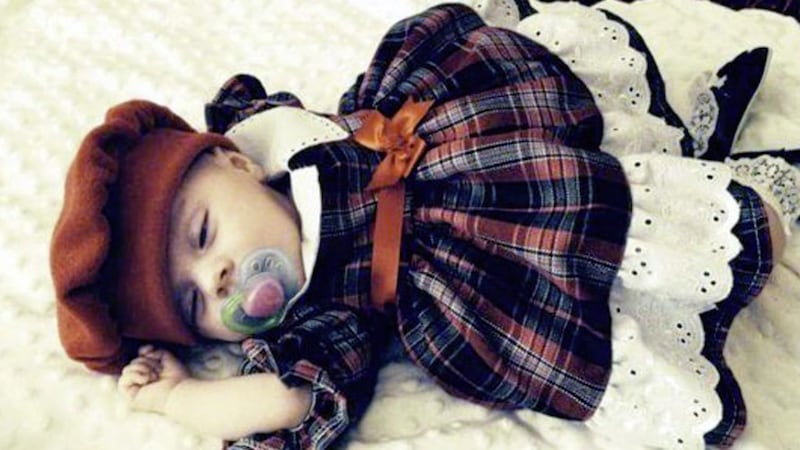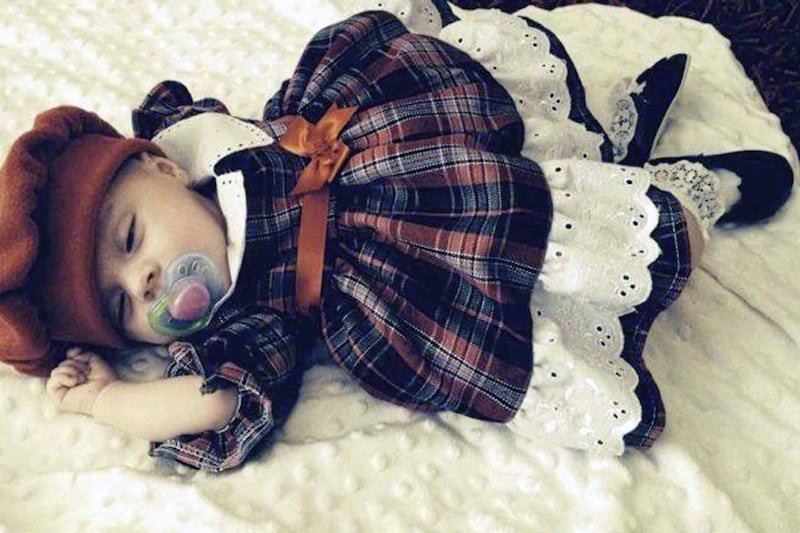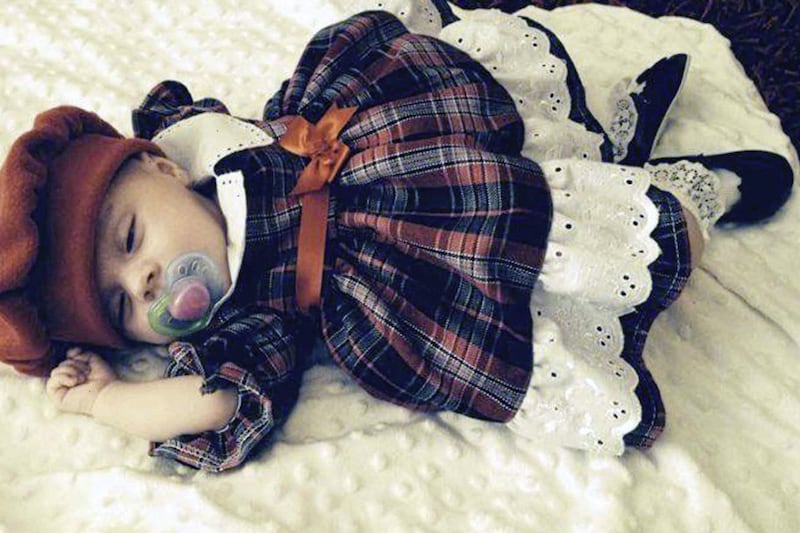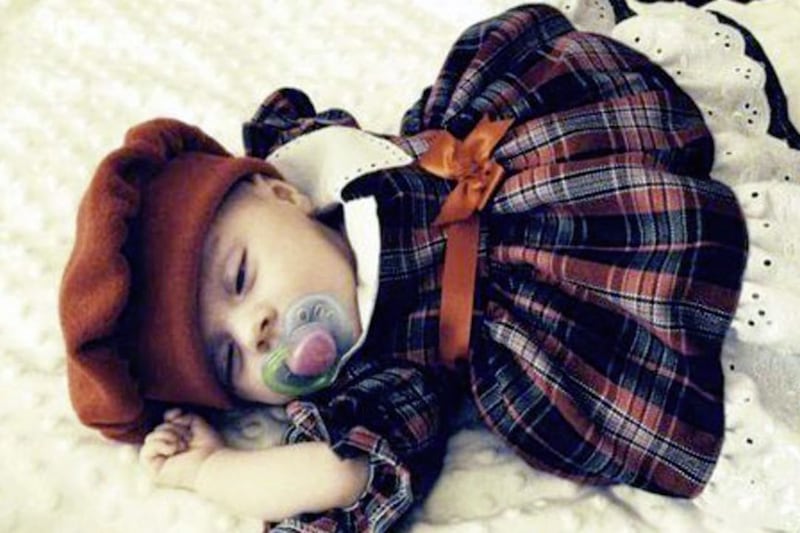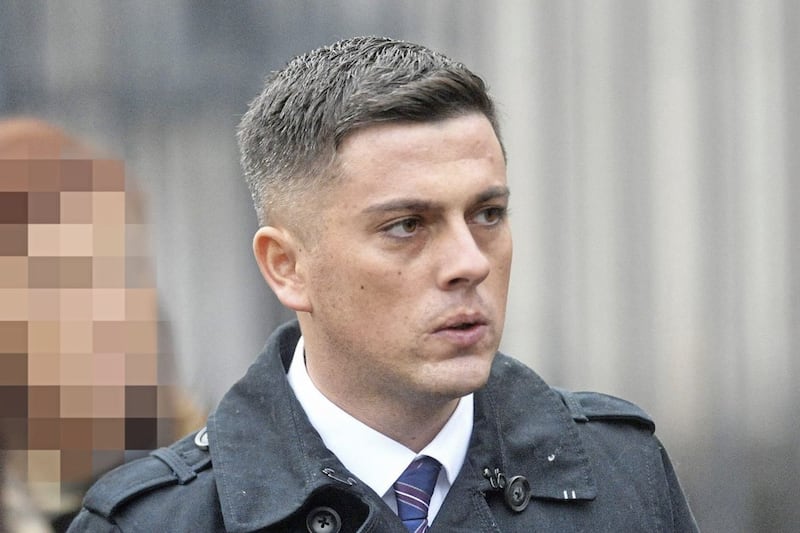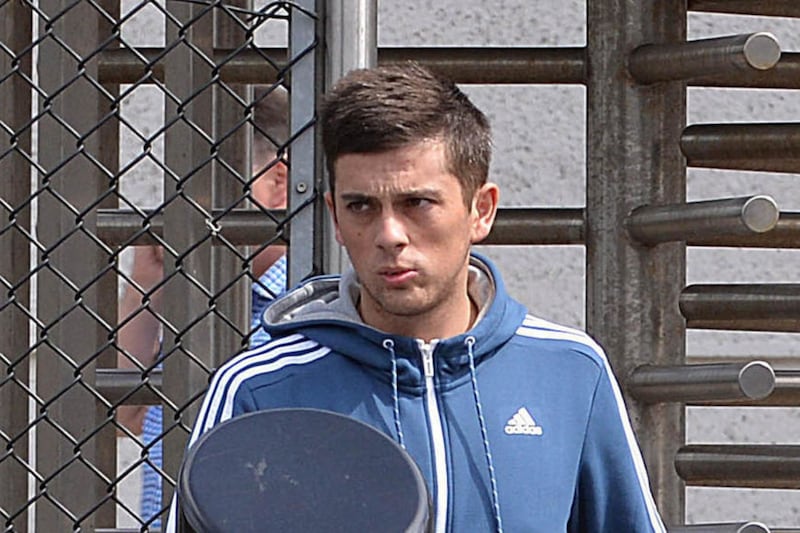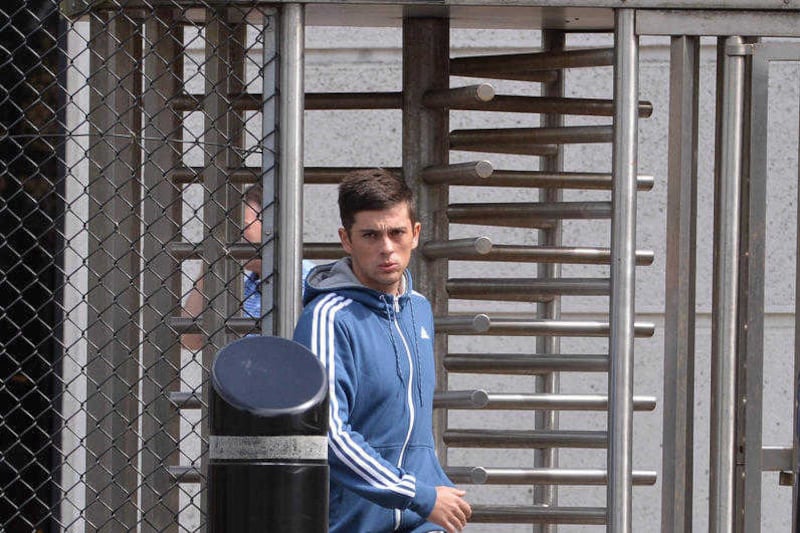A SENIOR consultant told a jury that a baby girl who was rushed to hospital by paramedics was "effectively dead'' when she arrived.
Consultant paediatrician Dr Julie-Ann Maney was giving evidence at the trial of west Belfast man Christopher O'Neill, (26), who denies murdering his baby daughter Cárágh Walsh.
The three-month-old died on 7 February 2014 two days after being taken to hospital from her Glasvey Park home in Twinbrook.
Dr Maney was giving evidence on the second day of the trial at Craigavon Crown Court, sitting in Armagh, of Mr O'Neill, from Whiterock Road.
It was suggested to the jury on the opening day of the trial by a prosecution counsel that a reason for the baby's death was that "perhaps he, ( Mr O'Neill) had snapped because she was crying and he could not get her to settle, only he knows that''.
The lawyer said it was not suggested that Mr O'Neill intended to kill his baby daughter, but that being unable to quieten her, he "must have lost self-control and that he caused those catalogue of injuries identified by the pathologists".
Dr Maney told the trial on Wednesday that on 5 February, 2014, the hospital received a call to the red "emergency telephone'' on the paediatric ward advising that a paramedic crew was on its way with a three-month-old baby girl who was in cardiac arrest.
When the ambulance arrived at the hospital doors, it was met by Dr Maney and her team who rushed baby Cárágh in for emergency treatment.
Dr Maney told the jury: "At this point we took over her airways. She had agonising breathing. Her breathing was not sufficient to sustain her life.
"She needed assisted breathing. She had no heart rate. She was effectively dead.''
Dr Maney said that when she spoke to Mr O'Neill about what happened he said that "Cárágh had been sitting in her wee bouncer....she was crying and crying constantly. She had stopped breathing and he shook her.''
The consultant continued: "I asked him 'what do you mean shook her?' He said: 'A wee bit to bring her round' or words to that effect.
"He said he tried to feed her and put a bottle in her mouth. He also said he blew in her mouth and phoned 999.''
The court heard that in the days before, the infant had been seen by her GP as the family felt she may have been constipated but the doctor could find nothing wrong with her.
Dr Maney said she took members of the family separately into a room to tell them that "everything that could be done is being done to save her life''.
"I told them from my experience Caragh was extremely unwell, she was gravely ill and that she might die.''
Dr Maney said that she received the results of the CT scan which showed that Cárágh had sustained a number of subdural haemorrhages to the brain.
She told the jury: "She had sustained a severe traumatic brain injury. This is not a normal finding in a child of this age and this gave me cause for concern.
"I have worked in the emergency department and I have seen severe traumatic brain injuries of children involved in road traffic collisions.....or violent acceleration and deceleration such as shaking.
"I asked how those injuries had been cause and Mr O'Neill said: 'I shook her that's why'."
Dr Maney said that as a result of the CT scan results, she informed the PSNI and Social Services and started the hospital's child safeguarding procedures and further investigations were carried out the infant.''
Asked by prosecution counsel Toby Hedworth QC how the injuries had been caused to Cárágh, Dr Maney replied: "She had been violently shaken and the injuries sustained subsequently caused her death.''
Under cross examination from defence counsel Paddy Little QC, the consultant paediatrician said that she did not notice any marks on the baby when she was admitted.
Added Dr Maney: "Cárágh was beautiful. She was well nourished and well kept. She was beautiful.''
